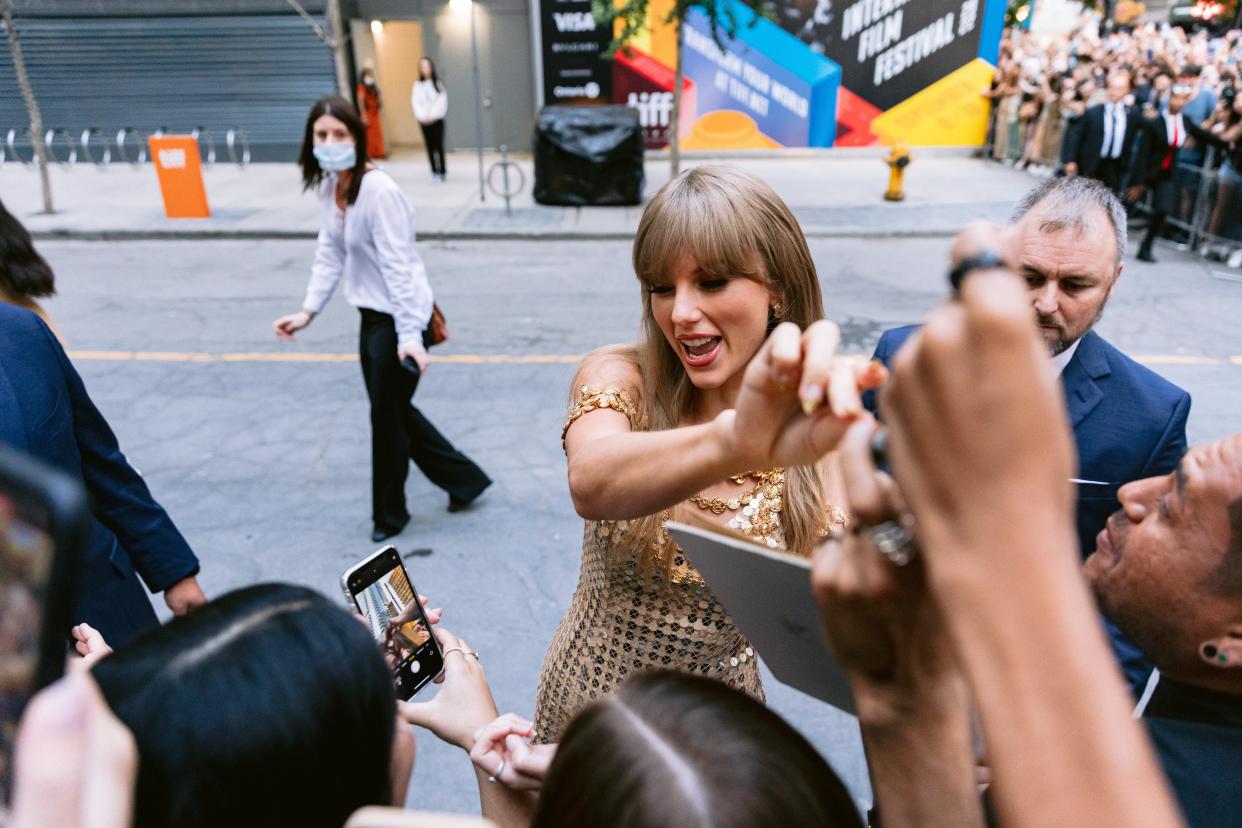Taylor Swift fans sent me death threats, doxxed my family, and accused me of being a pedophile after I criticized her Eras Tour

My story criticizing Taylor Swift's Eras Tour led to a wave of online harassment from her fan base.
I got death threats, was doxxed, called anti-gay slurs, and a campaign was started to get me fired.
While stan culture can foster community, it also can promote hostility, an expert told me.
I was waiting in line to order coffee when the death threats started flooding my inbox.
At first, I wasn't exactly sure what they were about — sadly, for my job as a reporter, a "kill yourself" and an anti-gay slur could be about anything I've written, from stories on drag queens in Florida to Russia's war in Ukraine.
But then I checked Twitter.
Hundreds of messages from Swifties — Taylor Swift's dedicated fanbase — filled my notifications. Some were doxxing my personal information, and others were predicting how and when I'd die. One said they were tracking down my family and friends.
Anti-gay slurs filled my mentions.
The worst came when a group of Swifties tried to mass email my boss and get me fired, which included starting rumors that I was a groomer and a pedophile. It was a shocking echo of a far-right talking point being peddled against LGBTQ+ people.
Why all the harassment? I wrote a story that gently criticized Taylor Swift's Eras Tour.
My actual review — which compared Taylor Swift's Eras Tour and Beyoncé's Renaissance World Tour — was quite positive. Eras is a true greatest-hits show and an incredible feat — even if it sometimes falls flat. I preferred the cohesion, themes, production, and community of Renaissance.
When I started receiving harassment, I figured part of the reaction was par for the course. If you write anything remotely negative about big pop stars, you invoke the wrath of their "stans" — a term for zealous fans that was likely coined in Eminem's 2000's song of the same title, but also has various origins.
But I was shocked and chilled by how far it went.
And it showcases the worst parts of stan culture, according to Robert Thompson, the founding director of the Bleier Center for Television and Popular Culture at the Newhouse School of Public Communications at Syracuse University.
"If you've said something they — and by they, I mean these large participatory communities — don't like, their approach is to try to impugn and indict you," Thompson said, "and make you not credible with any means at their disposal."
Fandom has always existed, but the internet allows "standom"

Fandom dates back to ancient times — the hottest Roman gladiators fighting in the Colosseum had enthusiastic supporters. But most people think of fandom as related to pop culture: The Beatles and Beatlemania, Star Wars and Star Trek, Michael Jackson and, now, Taylor Swift.
"We always had fans and even fans that went over to a more stalker level of enthusiasm," Thompson told Insider. Think of posters on walls and groupies — or, on the more extreme end of the spectrum, threatening letters and stalkers.
Stan culture takes that fandom to another level, using social media to connect fans of similar interests worldwide. "The idea of stan culture as we know it today really does require the internet," Thompson said. "The internet has made all of that stuff so incredibly easy."
It creates a community — in Swifties' case, they can enjoy their shared love of her music, dissect who song lyrics could be about, and speculate what her next album will be.
"This can all be done in healthy, exciting ways," Thompson said, "or it can be done in dysfunctional and creepy kinds of ways."
"And given the internet's unique proclivity and characteristic to be very friendly to the creepy and dysfunctional because everything about its means of distribution is anonymity," he added, "it was inevitable that we were going to get all kinds of creepy stuff."
That "creepy stuff" includes what happened to me: death threats, false accusations of pedophilia, and threats against my loved ones. It's easy for a stan to disagree with someone's opinion and decide to attack them.
After my Swift and Beyoncé concert review blew up, I was accused of fueling an ongoing war between Swifties and the Beyhive.
That feud involves stans debating Spotify streaming numbers to determine which artist is more successful and insulting Swift and Beyoncé's appearances.
Thompson called stan wars like these a dose of "fighting spirit" akin to a political divide like Republicans and Democrats, or even a sports team rivalry. They tie back into the idea of a community; not only do stans such as Swifties find shared interests in each other, but they also find common enemies.
And while it's likely that artists working today, such as Swift and Beyoncé, are aware of stan culture online, Thompson said, not all of them speak out against it. After all, stans put in a lot of work for their artists — they mass stream new songs, advertise concerts, and keep an artist's name everywhere.
Representatives for Swift did not respond to a request for comment for this story or on stan harassment online.
Read the original article on Insider


